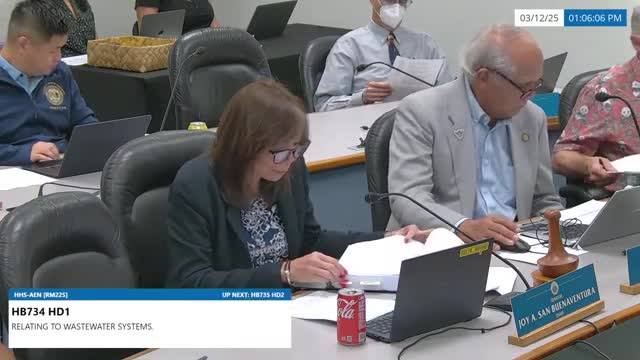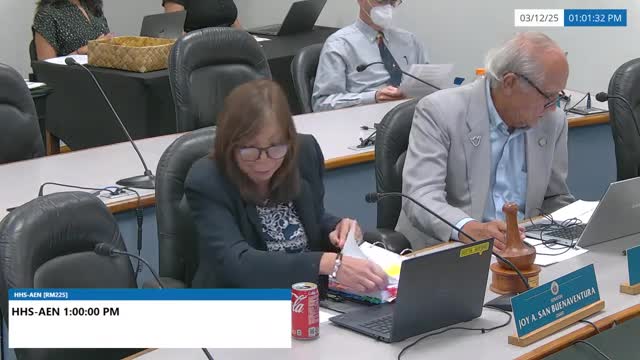Article not found
This article is no longer available. But don't worry—we've gathered other articles that discuss the same topic.

Senate committees advance HB431 to expand supportive housing and Ohana Zones; lawmakers ask for spending details

Avian influenza bill advances after heated public testimony; DOH and Ag detail response needs

Committees back labeling bill for wipes, but DOH warns enforcement and staffing needed

Senators weigh cost, equity of wastewater and cesspool bills; health department seeks positions to run grants

